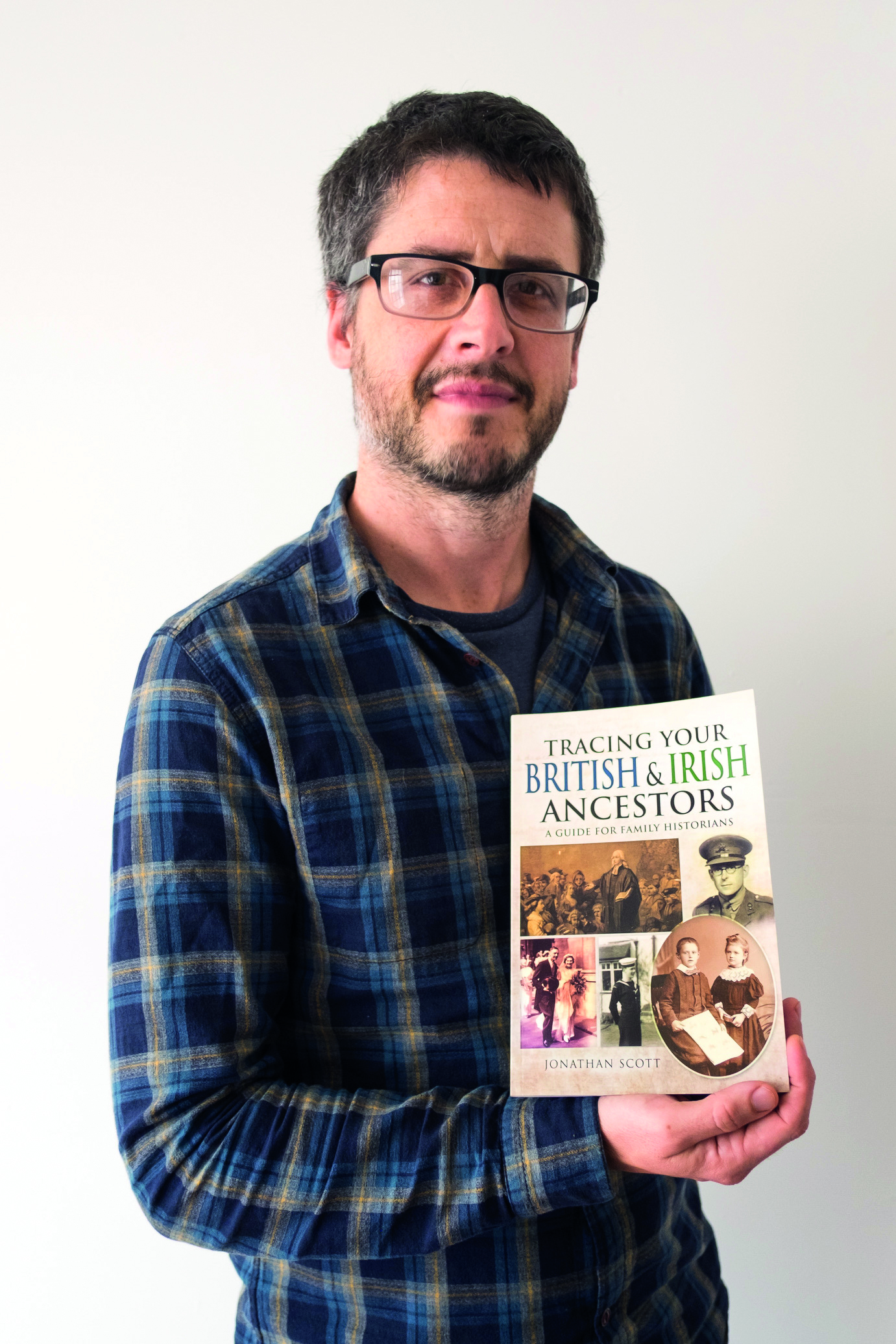The term ‘metalworker’ describes a wide range of occupations – from employees manning vast steelworks, to engineers, to the village smithy.
For this article we’re focusing on individual craftsmen, the small businesses, local workshops or foundries, and medium-sized manufacturers. If your interests lie in larger-scale heavy industry, then cross-archive catalogues such as The National Archives’ Discovery are the place to begin. These can help you track down collections that reside in county record offices, museums, or specialist libraries and archives.
Mark Crail’s Trade Union Ancestors site is another useful starting point. It includes an alphabetical list of all known trade unions that have existed in the UK over the past two centuries. Remember that many were named by place before trade – such as the Manchester Tin-Plate Workers’ Society and the Warrington Wire Weavers Association. There’s also a guide to sources for further research, trade union histories and links to specialist archives and libraries.
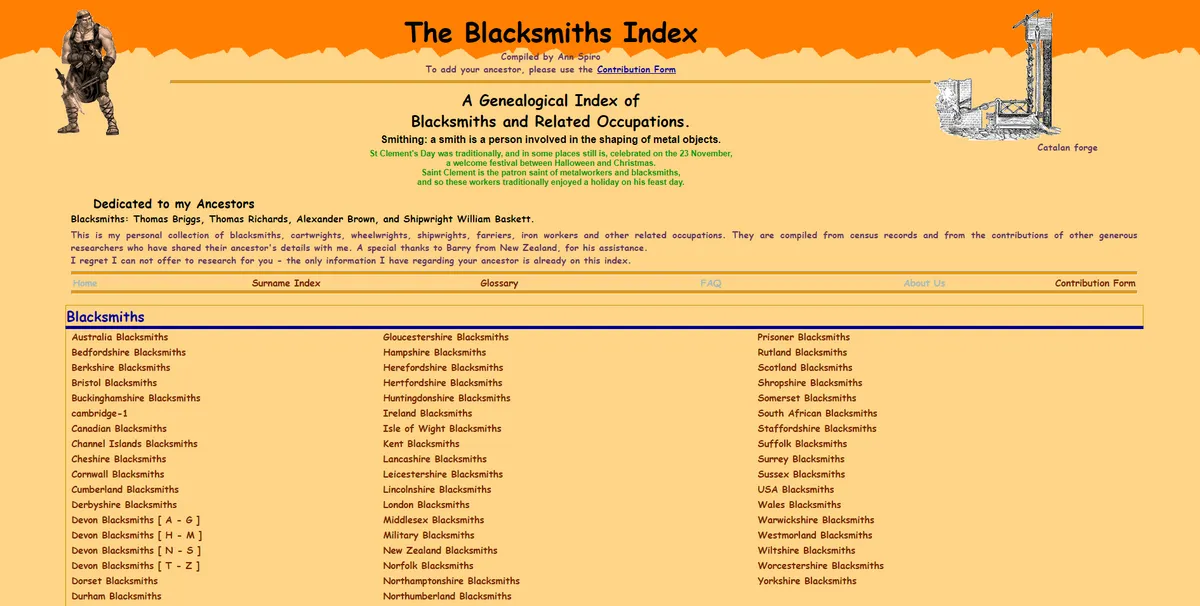
This homespun website brings together information about metalworkers and associated trades. The long-standing labour of love of Ann Spiro, it represents a personal collection of material relating to blacksmiths, cartwrights, wheelwrights, shipwrights, farriers, ironworkers and other occupations, mainly compiled from census records, bolstered with contributions from other researchers.
Exploring the data by county, it’s obvious there’s a great deal of detail at your fingertips. An entry for Suffolk farrier George Balls, for example, records 15-year-old George as a lodging apprentice with Jeremiah Hambling in Beccles in the 1861 census. There is also data on related trades such as anchorsmiths, coachwrights, cutlers and enginesmiths.
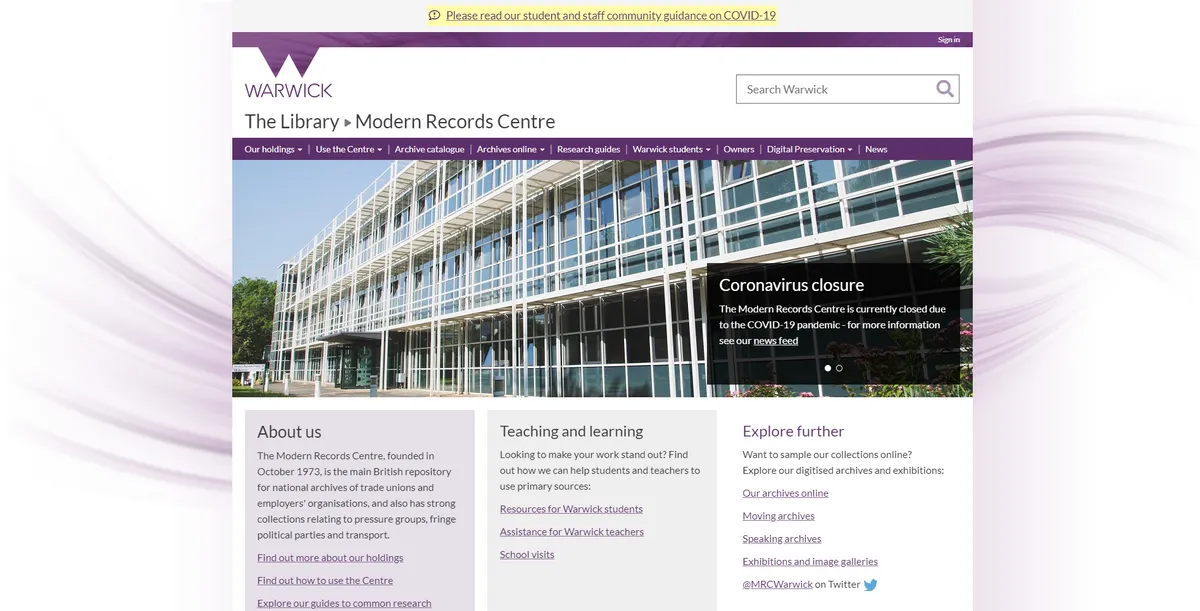
While employment records of metalworkers may be hard or even impossible to find, a potential alternative are records of professional associations, groups or unions. The University of Warwick’s Modern Records Centre looks after material relating to trade unions, whose records might include membership registers, details of benefits paid, or branch meetings and events. The website has plenty of guidance for anyone new to the subject. Indeed, if you’ve recently come across a mysterious-sounding metalworking occupation in the census, there’s a list of trades and terms adapted from a 1927 dictionary from the Ministry of Labour (see ‘Go Further’).
3. Public Record Office of Northern Ireland

Alongside the directories on the website chosen by our expert this month, researchers with Northern Irish roots should try the Public Record Office of Northern Ireland’s free, dedicated directories site.
Here you can search through numerous volumes covering Belfast and Ulster. A simple keyword test will show you how the search engine works. Once you’ve clicked ‘Search’ you can filter results by individual directory, or focus on a section from within the directories (such as ‘Advertisements’ or ‘Professions & Trades’), or explore by locale – from Antrim to Whitehead. The last option is especially useful for quickly finding references in the area where your ancestor lived.
4. Findmypast
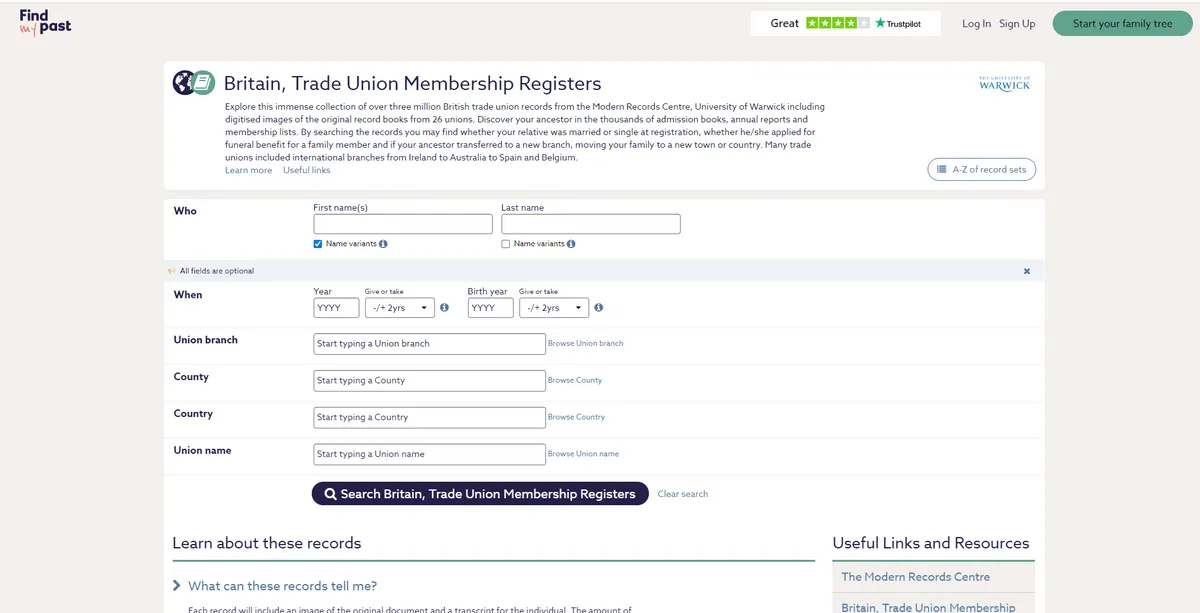
Commercial websites may have general occupational resources that will include metalworkers, such as apprenticeship records. Findmypast, through its partnership with the Modern Records Centre, has millions of trade union records. These admission books, annual reports and membership lists can reveal an ancestor’s marital status, whether they applied for funeral benefit for a relation, or if they transferred branches when moving to a new area.
Ancestry also has an occupations collection, which includes Mechanical Engineer Records (1847–1938).
5. FamilySearch
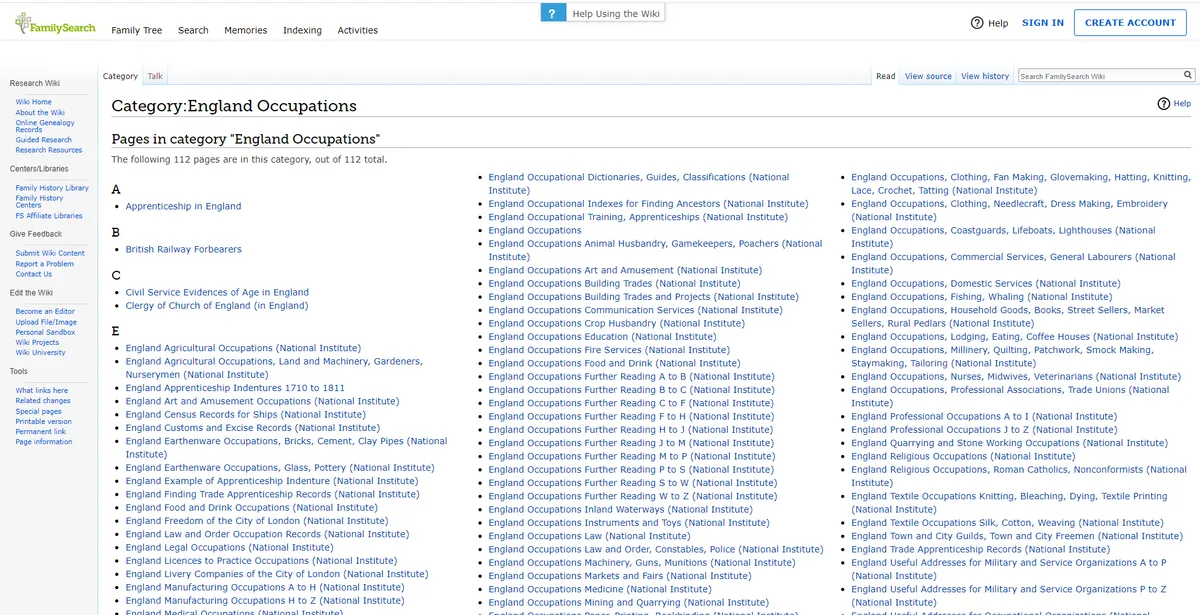
The FamilySearch Wiki has all sorts of advice for finding out more about occupational sources in England. These include an A-to-Z of metalworkers, which in turn leads to sections on makers of coins and cutlery, lead smelters and plumbing, manufacturers of small metal goods, farriers, gold beaters and more, all drawn from online courses run by the National Institute for Genealogical Studies.
There are no links to online databases or archives, but there are references to books, indexes and genealogical studies for specific crafts – such as an index to Worshipful Company of Farriers apprenticeships (1619–1800) from the Society of Genealogists.
6. Expert's choice: Historical Directories of England & Wales
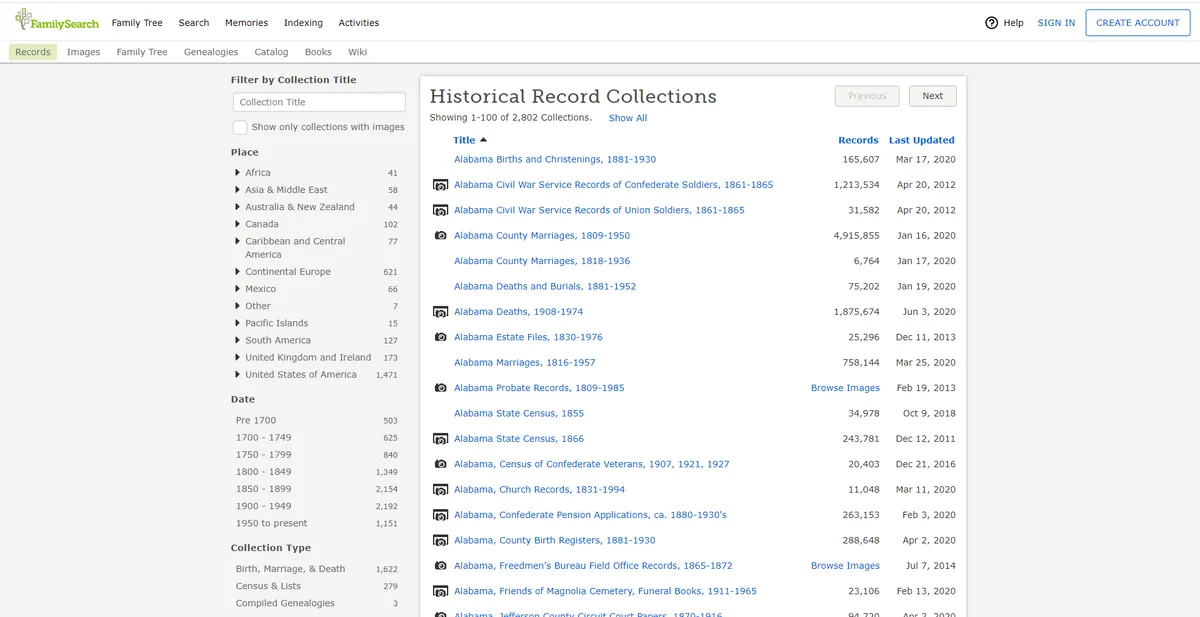
Chosen by Adèle Emm, author of Tracing Your Trade and Craftsmen Ancestors:
"When it comes to researching ancestors who were manufacturers, foundry workers, engineers or tinkers, there are several places you can try.
"Naturally if your relative worked for a large firm then archives may survive in the appropriate record office – or indeed still be maintained by the company itself.
"But what about smaller businesses, workshops or individuals? The work of the average blacksmith, silversmith or tinsmith wouldn’t necessarily generate much of a paper trail for us family historians to follow, which is where local county trade directories can come to the rescue.
"Many of you will already be familiar with Historical Directories of England & Wales, which forms part of the University of Leicestershire’s wider Special Collections site.
"It offers free access to digitised trade and Post Office directories, which provide lists of professional businesses and residents, mainly dating from the mid-19th to early 20th centuries.
"It’s possible to view the directories online, or you can download PDF or text-only copies of entire volumes. You can search by keyword to find references to firms, businesses or individuals, of you can simply trawl by area – moving from street to street through village, town or city. Indeed, there are many editions covering heavily industrialised areas such as the Black Country, or cities associated with particular metal trades such as Sheffield.
"The term ‘metalworker’ covers an awful lot of ground, so it’s worth consulting an occupational dictionary if you come across an archaic or cryptic job title."
Go further
7. Archives Hub
Find physical and digital sources held in more than 350 institutions across the UK.
8. A Dictionary of Occupational Terms
This occupational dictionary was compiled by the Ministry of Labour in 1927, and is based on classifications used in the 1921 census.
9. Discovery
Search for archives of occupations or firms in museums, libraries or county record offices.
10. Genuki
The free website Genuki includes sections on blacksmiths, manufacturers and apprentices.
11. Museum of English Rural Life
MERL has collections relating to all kinds of rural crafts and communities.
12. National Records of Scotland
The National Records of Scotland’s research guides include this general page covering crafts and trades.
Learn about the history of the RVS. You can also search or download 419 issues of the WVS/WRVS Bulletin (1939–1974), and 84,000 pages of WVS Narrative Reports (1938–1945).
This website has data drawn from all sorts of sources relating to Steel City.
This site features an A-to-Z listing of British trade unions from the past 200 years.
Jonathan Scott is a freelance writer and family history expert. You can visit his website or follow him on Twitter.
